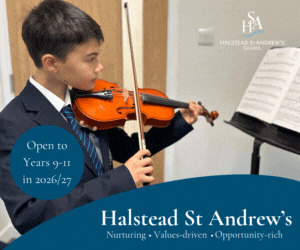Primary Times - the definitive what’s on and where to go family guide of activities and events for children of primary school age. Things to do with your kids during the school holidays including arts and craft activities, music and theatre for children, parties, competitions, days out, and family attractions along with term time drama schools, dance classes, after school clubs and sports activities. Things to do at a place near you!
Did you know that balance, eye tracking and coordination impact on a child’s ability to focus and concentrate?
A pilot study currently running with 17 schools across the UK is demonstrating that a child’s balance, eye tracking and coordination can impact on their ability to learn.
STEP has been conducting the 12 month pilot study, since January of 2015, which has included 106 children (20 in a control group) across 5 school alliance groups, including Independent Association of Prep Schools (IAPS), United Learning and Cognita.
STEP is a personalised physical exercise programme which stimulates the cerebellum. This is the part of the brain which makes tasks automatic. The pilot aims to evidence that by repetitively completing specific balance, eye tracking and coordination exercises which escalate in complexity over a prolonged period of time, you can improve the performance of the cerebellum and positively impact on a child’s ability to take in, process, retain and recall information.
The pilot study includes children over the age of 7 who have general focus and concentration issues and symptoms associated with dyslexia, dyspraxia and ADHD such as poor working memory, cognitive processing issues, lack of spatial awareness and coordination problems.
The final results of the pilot will be published by an independent company in March 2016, Dr Simon Moore and Innovation Bubble, however the data at the 8 month point is already demonstrating that the pupils who are doing the STEP exercises have seen greater improvements in their balance and eye tracking skills than those in the control group who are not completing the exercises.
Schools on the pilot are reporting improvements in self-confidence, academic performance, behaviour and general well-being. The majority of teachers (27/30) state that they have noticed positive changes in the pupils.
Parents are also reporting improvements with many describing their child as being more confident, less anxious and better able to cope socially as well as academically.
“He has gained in confidence and shown concrete improvement in concentration and work.” “STEP has shown to be instrumental in his concentration & coordination. It has helped him gain confidence.”
80% of pupils reported that they felt a positive difference since starting the STEP exercises, particularly in the areas of concentration, focus, and confidence. Many stated that they were experiencing improved academic performance and found work easier. 68% of the pupils said they enjoyed the STEP exercises.
STEP is accessed online and the exercises are performed for 7-10 minutes, twice a day, either in partnership with the school or at home via a mobile, pc or tablet. Each exercise is explained using step-by-step diagrams and a video demo. An adult is required to oversee the child performing the exercises in order to mark their capacity to perform and complete them. How the exercises are ‘marked’ determines which exercises the child receives the following day. Accuracy and compliance are key.
STEP is a recognised intervention by the British Dyslexia Association. It is seen as complementary to other interventions as it enables a child to learn more effectively.
To learn more about STEP and to read more about their pilot study please visit www.STEPtoday.com and join one of their free weekly webinars, or follow them on @STEPtoday.







